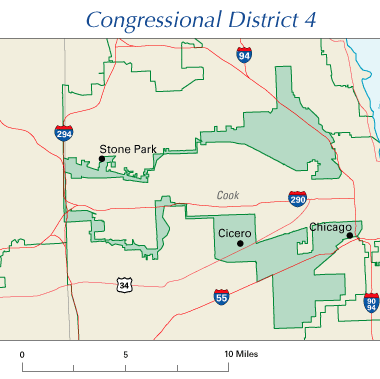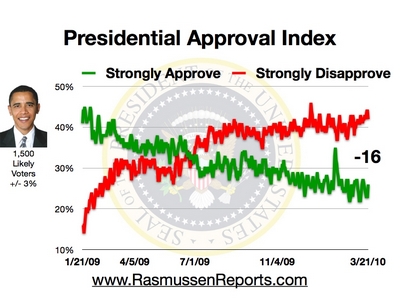Richard Cole wrote:Roy Pitchford wrote:I see my nation, one founded on freedom and liberty, slowly turning into a fascist regime where the state has control over everything, from industry to our bodies and our minds.
Roy - this is an interesting statement. I know it's off-topic and probably doesn't belong on here, but would you care to expand how we're turning into a fascist regime, without quoting Beck 'n' Buddies.
First, let's define fascism:
Merriam-Webster wrote:1 often capitalized : a political philosophy, movement, or regime (as that of the Fascisti) that exalts nation and often race above the individual and that stands for a centralized autocratic government headed by a dictatorial leader, severe economic and social regimentation, and forcible suppression of opposition
2 : a tendency toward or actual exercise of strong autocratic or dictatorial control <early instances of army fascism and brutality — J. W. Aldridge>
http://www.merriam-webster.com/dictionary/fascism
So, if I read that right: a strong central government and a leader with unlimited power which puts the collective before the individual, has strict economic and social regulation and prevents the opposition from gaining enough power to challenge.
-----------------------------------------------------------------------
Part 1: Strong central government
The duties of the US government are defined with the Constitution and many (but not all) of its amendments. Education, health care, welfare (as we know it), environmental protection and a massive number of other things that the US government has taken on are not spend out by the Constitution and, thus, should fall to the states under the provisions of the 10th Amendment. Our central government has gradually been taking more and more power for itself.
Only recently have states started to push back, such as the Montana Firearms Freedom Act, which flies in the face of a Supreme Court ruling regarding the Commerce Clause (Wickard v. Filburn) regulation of intra-state commerce.
Part 2: A leader with unlimited power
The president (not just Obama) has slowly been accumulating more and more power for himself, to the point that he can get around Congress to do things. Let's see some examples:
- An extensive Cap and Trade bill was put forth by Henry Waxman and was passed in the House. It has so far failed to pass the Senate. In response, the EPA, at the direction of the Obama administration, is set to regulate CO2 and other greenhouse gases.
- Attempts have been made to decide on regulating the internet. Neither the House nor Senate have been able to come up with anything, so it was turned over to the FCC.
- In the State of the Union, Obama himself declared that since the Senate had been unable to act in creating a Debt Commission for him, he would sign an executive order.
- Card check, which would do away with the secret ballot in union formation (among other things, can't get past the Senate. Obama then turned to an appointment of a Card check supporter named Craig Becker and his appointment was blocked. Obama could still use a recess appointment to put the man in place.
Part 3: Collective before the individual
I could look a bunch of stuff up, but I think something I've pulled together once before will do the job just fine:
roy pitchford wrote:"Because every old person was once young, an emphasis on life-years does not discriminate against anyone; the very people who lose when older also gained when younger...in producing regulatory impact analysis...agencies should inquire into life-years, and take into account of that inquiry in deciding what to do."
--Cass Sunstein, head of the White House Office of Information and Regulatory Affairs--
"A program of sterilizing women after their second or third child, despite the relatively greater difficulty of the operation than vasectomy, might be easier to implement than trying to sterilize men."
--John Holdren, Director of the White House Office of Science and Technology Policy
"Indeed, it has been concluded that compulsory population-control laws, even including laws requiring compulsory abortion, could be sustained under the existing Constitution if the population crisis became sufficiently severe to endanger the society."
--John Holdren
"If some individuals contribute to general social deterioration by overproducing children, and if the need is compelling, they can be required by law to exercise reproductive responsibility--just as they can be required to exercise responsibility in their resource-consumption patterns--providing they are not denied equal protection."
--John Holdren
"Conversely, services provided to individuals who are irreversibly prevented from being or becoming participating citizens are not basic and should not be guaranteed. An obvious example is not guaranteeing health services to patients with dementia. A less obvious example Is is guaranteeing neuropsychological services to ensure children with learning disabilities can read and learn to reason."
--Ezekiel Emanuel, health-policy adviser at the Office of Management and Budget
In the Lancet, Jan. 31, 2009, Dr. Emanuel and co-authors presented a "complete lives system" for the allocation of very scarce resources, such as kidneys, vaccines, dialysis machines, intensive care beds, and others. "One maximizing strategy involves saving the most individual lives, and it has motivated policies on allocation of influenza vaccines and responses to bioterrorism. . . . Other things being equal, we should always save five lives rather than one.
"However, other things are rarely equal--whether to save one 20-year-old, who might live another 60 years, if saved, or three 70-year-olds, who could only live for another 10 years each--is unclear." In fact, Dr. Emanuel makes a clear choice: "When implemented, the complete lives system produces a priority curve on which individuals aged roughly 15 and 40 years get the most substantial chance, whereas the youngest and oldest people get changes that are attenuated."
"Principles for Allocation of Scarce Medical Interventions" The Lancet, January 31, 2009
http://online.wsj.com/article/SB10001424052970203706604574374463280098676.html
Oh, 2 more words: wealth redistribution.
Part 4: Economic and Social Regulation
Wilson created the Federal Reserve.
FDR created the SEC.
Obama has the Debt Commission (mentioned above).
Through its use of bailouts, the Obama administration picked and chose which companies were given a chance to succeed and which had to fail.
The government owns banks via the bailouts, plus 2 of 3 automotive companies.
Those same automotive companies (along with anyone else that wishes to sell in the US) are regulated to the hilt for emissions.
It has its arms up to its elbows in housing through Fannie Mae and Freddie Mac.
They're trying to get into health care through the bill to be voted on tomorrow. Several people have said this is just the beginning. Maybe its just foreshadowing we get from VP Biden when he says, "You know we’re going to control the insurance companies."
Oh, let's not forget tomorrow's bill also has Education ramifications...no more private loans for education. It will all go through the government.
I'm sure I missed something, but this is good for now, I think.
Part 5: Prevention of Opposition
There's been talk about a revival of the Fairness Doctrine.
Fox News is deemed to "not be a news organization" by several members of the administration.
Nancy Pelosi's attempts to marginalize opposition by referring to the Tea Party and related groups as "astro-turf".
Ignoring the will of the people who, to the tune of 60+%, are against this health bill.

Both parties are guilty of gerrymandering.
Now, do you feel I've got a case for saying we are heading in the direction of fascism?



